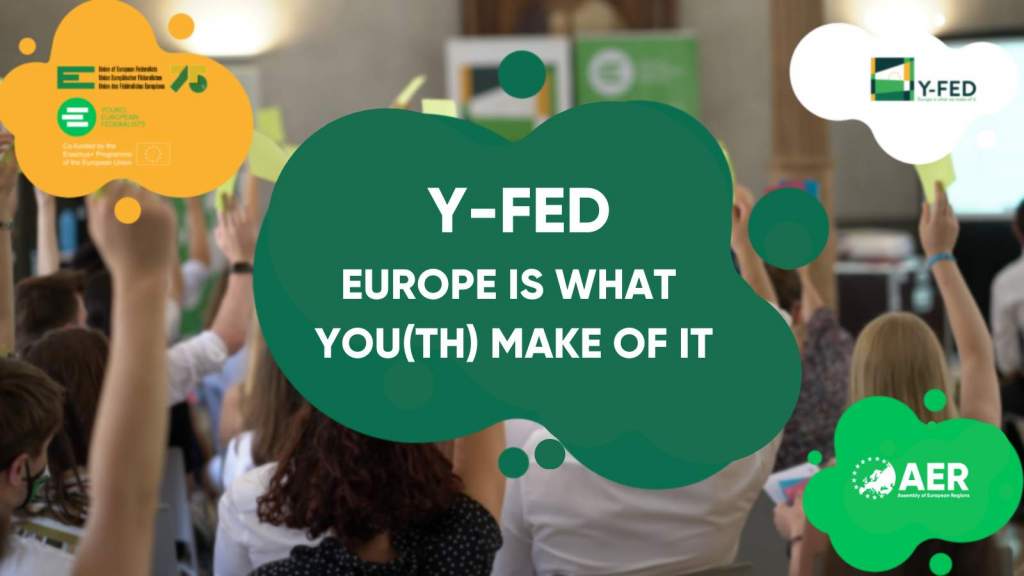Under the scope of the European Project, ‘Y-FED: Europe is what we make of it’, the Assembly of European Regions (AER) ran a poll gathering data on citizens’ expectations and priorities on the future of Europe, with a focus on young people. The results were presented at the Y-FED Final Conference in Brussels and announced in our press release, which can be read here.

About the poll
The representative poll was conducted by Savanta in June 2021 and included six EU countries (Germany, France, Italy, Poland, Romania and Sweden), with a sample over 1,000 participants per country.
On the Y-FED Project
This poll aimed to gauge the state of young people’s active citizenship in the European project, something that the AER and our partners, the Young European Federalists (JEF) set out to achieve over the last two years with our project, ‘Y-FED: Europe is what we make of it’.
By developing a proposal for an improved institutional framework of the EU in line with the European Youth Goals (EYGs), Y-FED provided young people with the opportunity to learn about the work of the European institutions, to participate in the design of more representative and accountable institutions, and to promote the developed model through policy dialogue and political advocacy.
Simultaneously, Y-FED raised awareness on the EYGs among young Europeans and local decision-makers, encouraging dialogue between them and prompting policy reform and implementation actions at the local and regional levels.
How politically active and aware are young Europeans?
Overall, respondents shared the belief that young people will have more opportunities to play an active role in society and politics, reflecting optimism for the future. Nevertheless, when asked about the Conference on the Future of Europe (CoFoE) young people showed a lack of awareness, with over half 46.8%) not having heard about the CoFoE. Despite this, the AER survey found that young people want a greater role in the political process.
Moreover, regional and local governments showed to enjoy a higher level of trust among young Europeans than national governments do (46% versus 38%), proving to be the level of government best-placed to introduce novel, non-bureaucratic channels for young citizens to engage in the decision-making process through and beyond the CoFoE.
Respondents were also asked about future opportunities in five different areas (Education, Jobs, Equal Rights, Civic Participation and Mental Health) for the next generation of young people in their region and split into two age groups (18-24 and 25-34). You can read more information in our Press Release or…
This poll was organised in the context of the European Project “Y-FED: Europe is what we make of it”. Y-FED aims to bring the EU closer to its young citizens by developing a proposal for an improved institutional framework of the Union in line with the European Youth Goals. The initiative, supported by an Erasmus+ “European Youth Together” grant, is implemented through a series of capacity-building training courses, public policy hackathons, a large-scale simulation of a reformed EU and advocacy actions.

